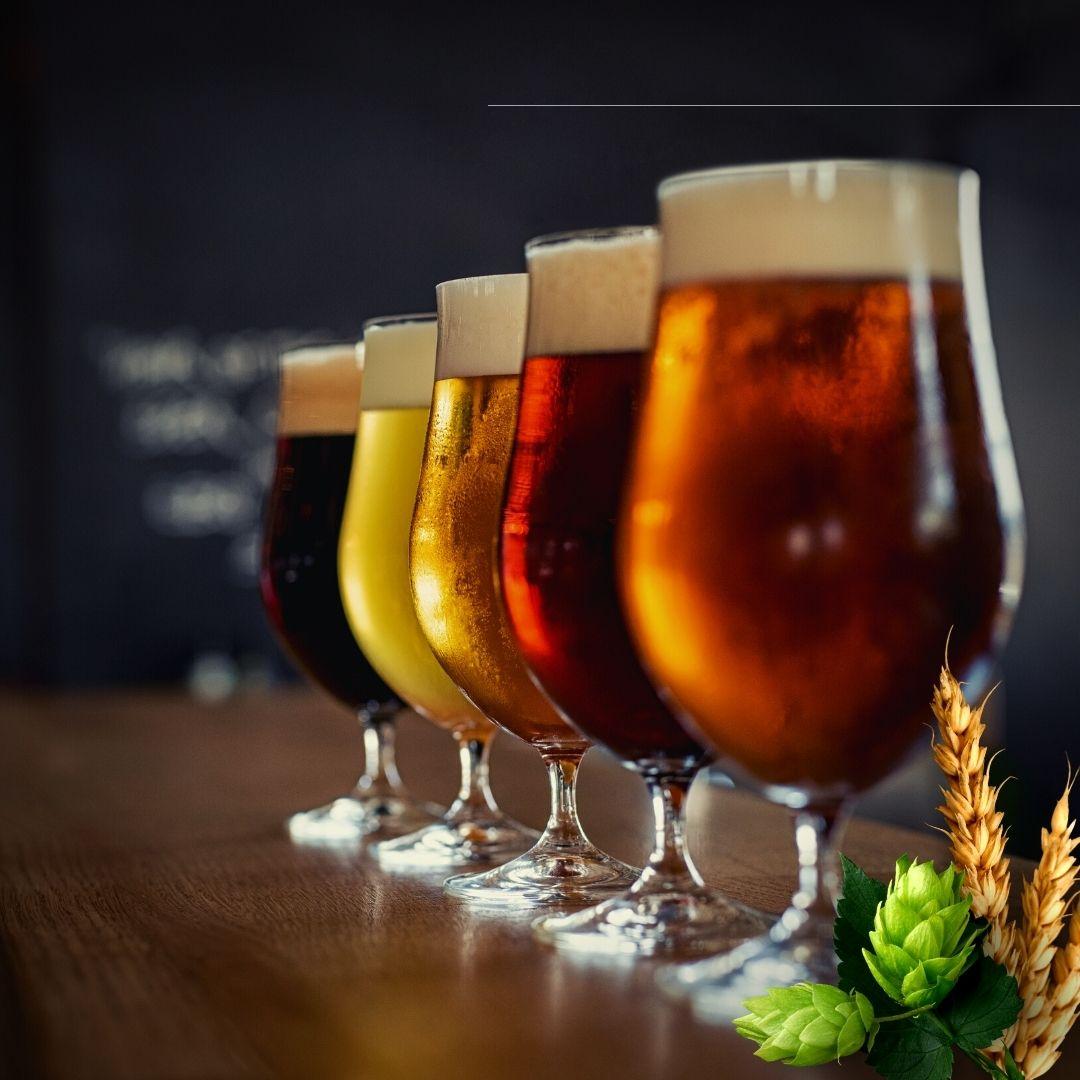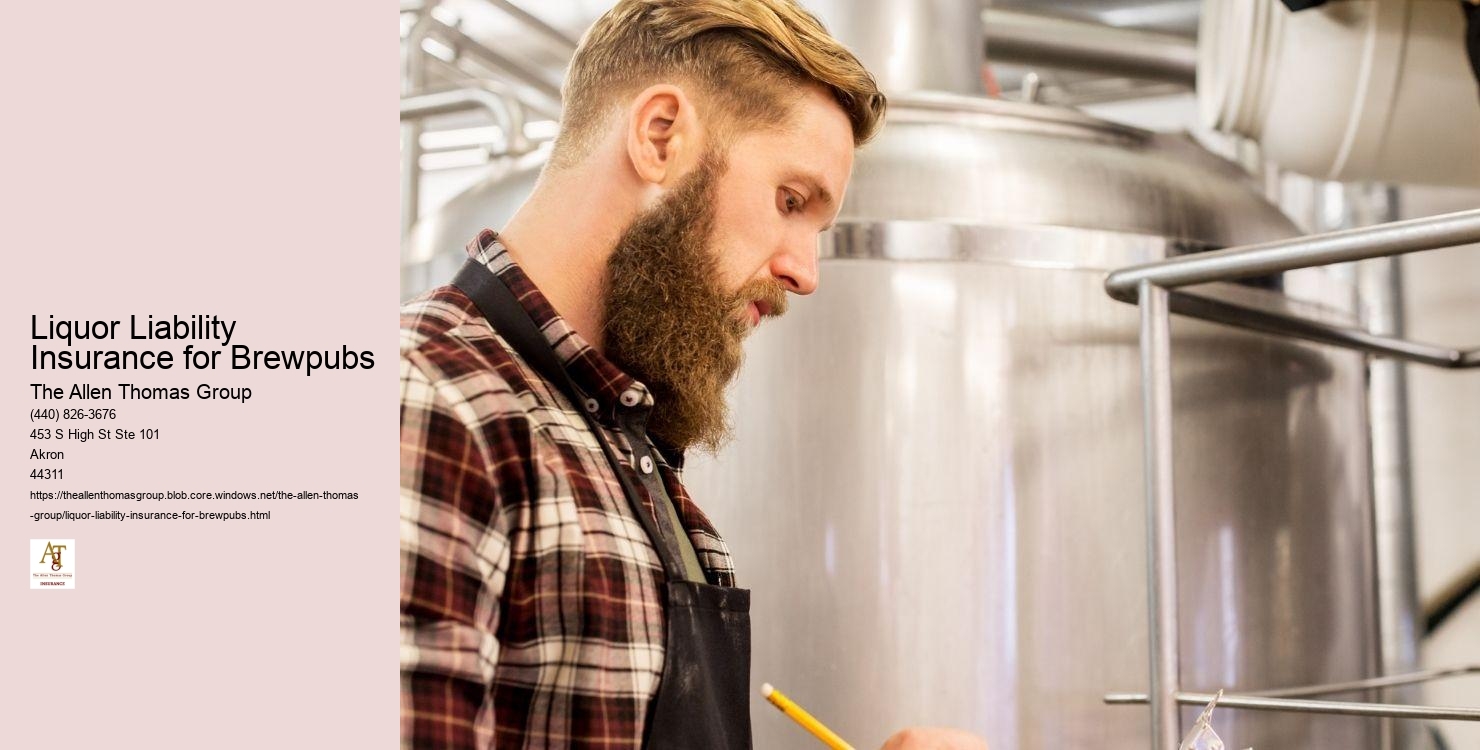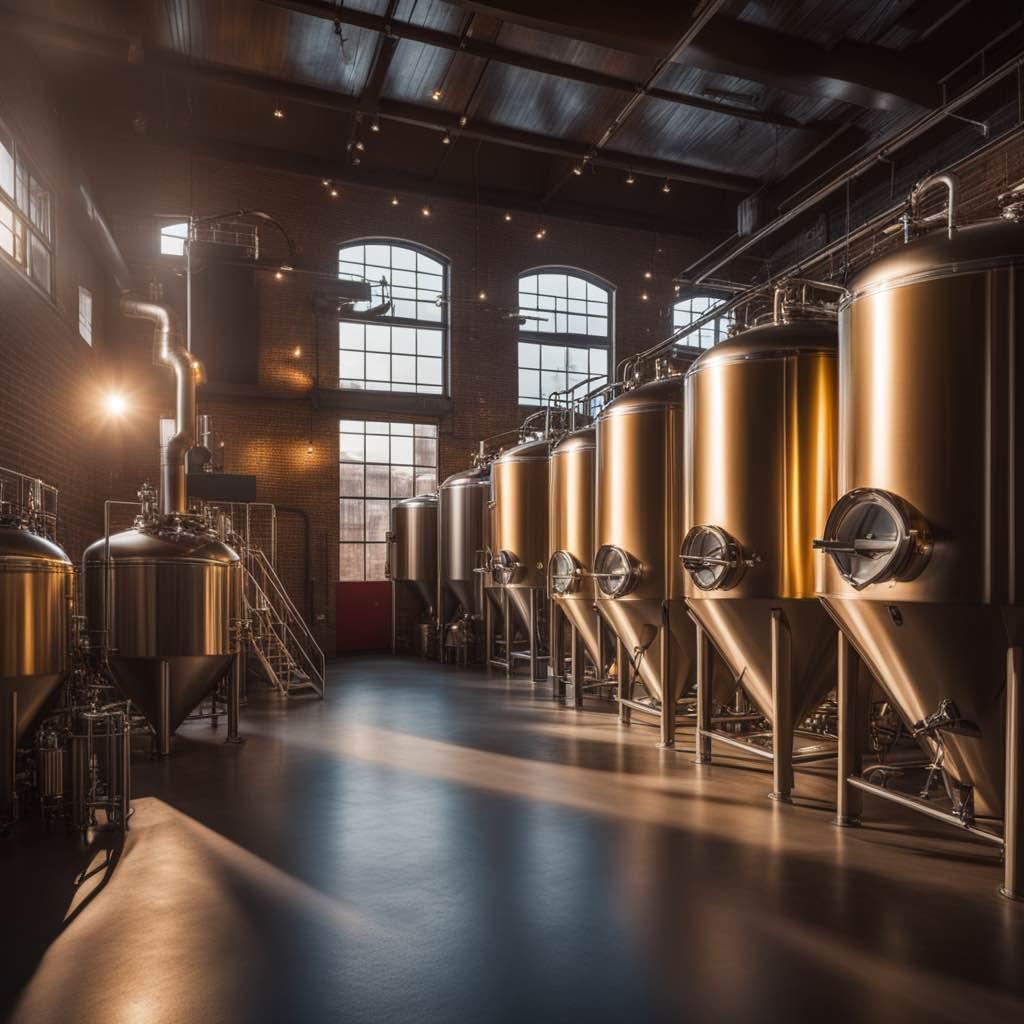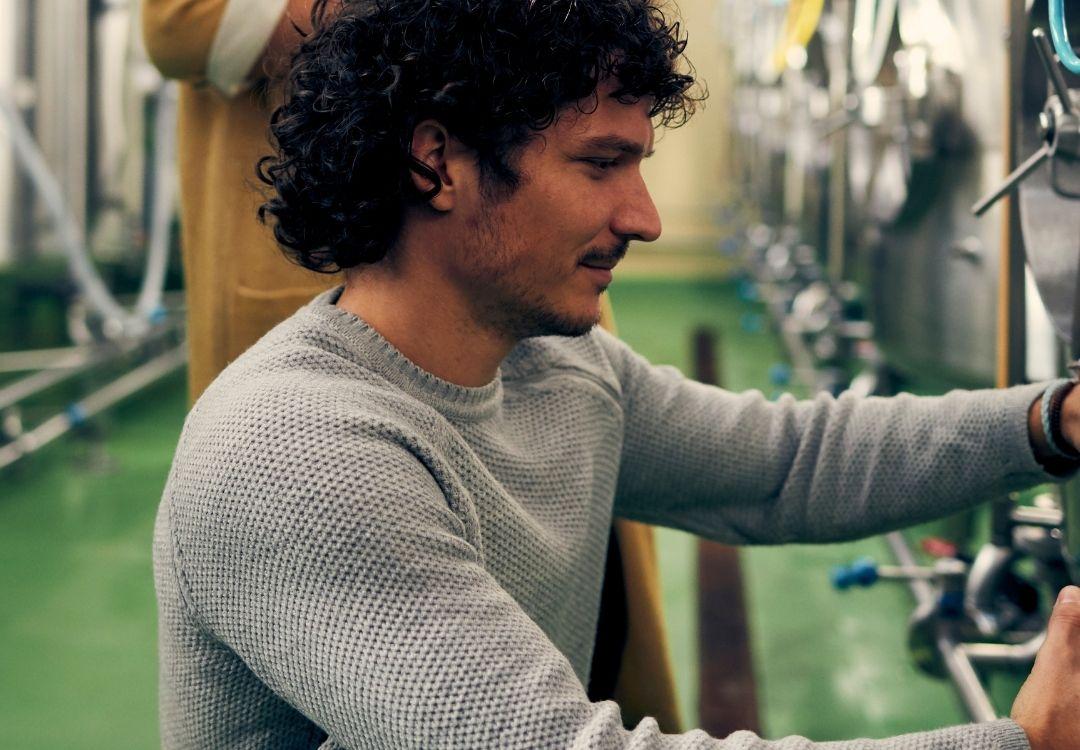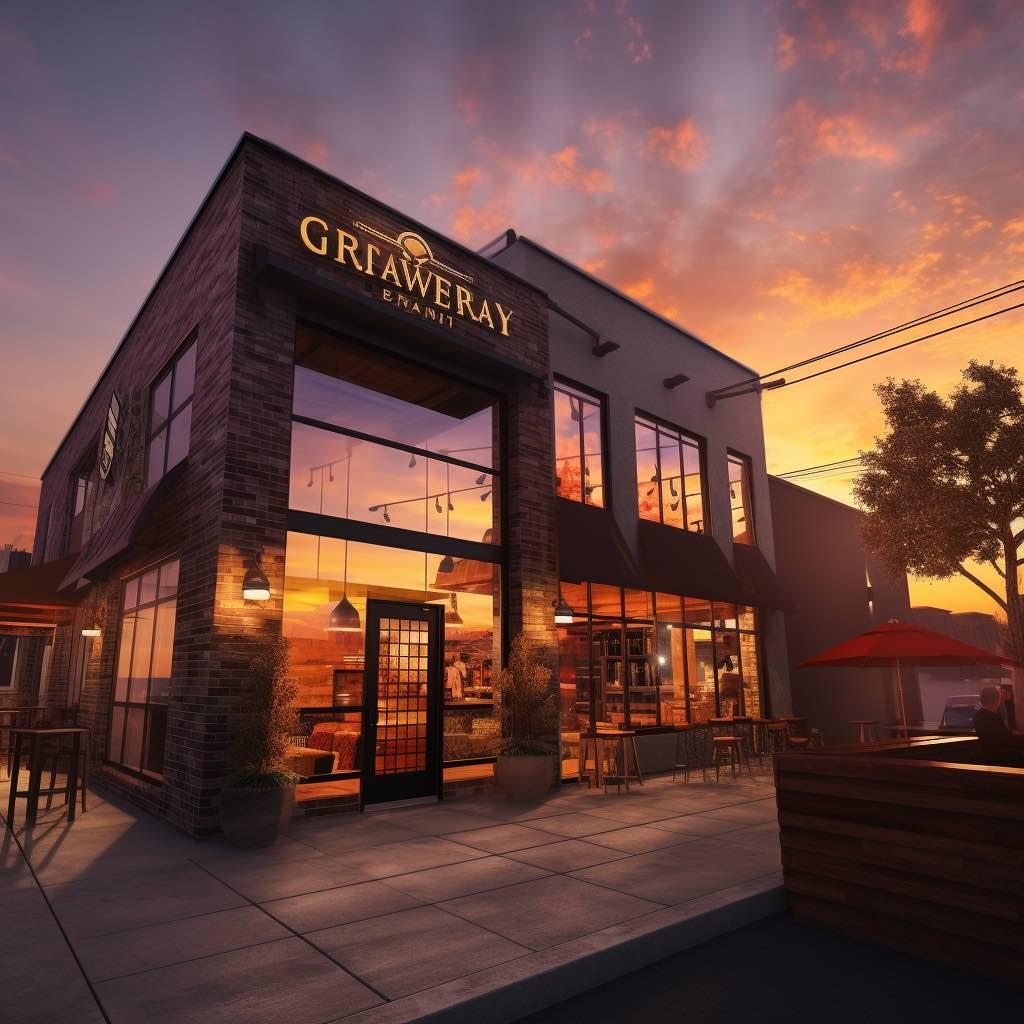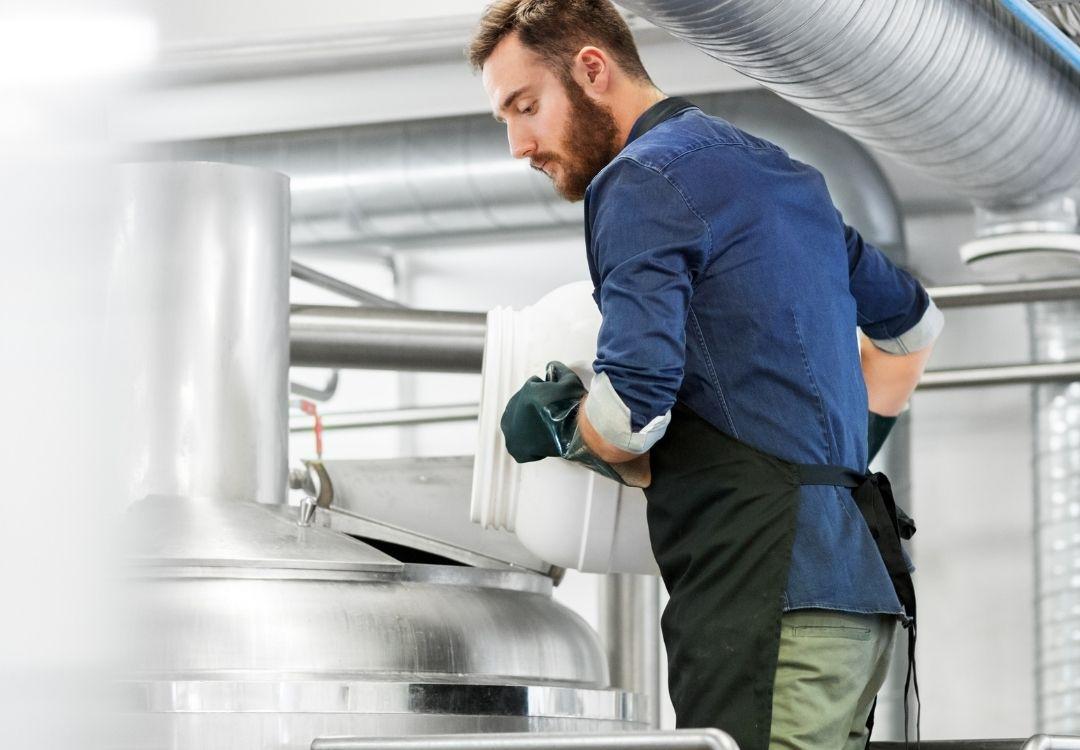Liquor liability insurance is an essential safeguard for brewpubs, which are establishments that blend the brewing of craft beers on-site with the dynamic atmosphere of a pub. This specialized form of insurance provides protection against potential legal claims arising from the service of alcohol to patrons.
Brewpubs, like any business serving alcohol, face inherent risks associated with their operations. Incidents such as over-serving a customer or inadvertently serving alcohol to a minor can lead to serious consequences and result in costly lawsuits. These incidents could stem from accidental oversights or misjudgments by staff members, despite rigorous training and adherence to protocols.
The unique nature of brewpubs – combining alcohol production with consumption on the premises – necessitates comprehensive coverage that accounts for both manufacturer and vendor liabilities. Liquor liability insurance is designed expressly to address these concerns by covering claims related to bodily injury or property damage caused by intoxicated patrons. This includes legal fees, settlements, and any awarded damages.
Without this coverage, a brewpub would have to confront such legal actions using its resources, which could cripple its financial stability or even lead to bankruptcy. The ramifications extend beyond immediate monetary loss; there's also potential long-term damage to reputation and customer trust.
Moreover, liquor liability insurance can be tailored to include additional protections relevant for brewpubs, such as assault and battery coverage in case fights break out among patrons or between patrons and staff due to intoxication. Brewpub owners may also opt for specific endorsements that cover events like live music performances or festivals they host.
It’s crucial for brewpub operators not only to secure adequate liquor liability insurance but also implement stringent policies for responsible alcohol service. This dual approach—combining proactive risk management with solid insurance backing—is the best strategy for protecting against the perils associated with serving alcoholic beverages.
In conclusion, liquor liability insurance is a vital component in safeguarding brewpubs from the legal repercussions tied to their distinctive business model. It serves as a financial shield against claims resulting from unintended overservice of alcohol while reinforcing responsible business practices – ensuring that these community-centered establishments continue thriving without being unduly burdened by avoidable litigation risks.
Liquor liability insurance for brewpubs is a critical coverage that protects the business from financial losses due to claims involving alcohol-related incidents. Brewpubs, where craft beer is brewed and served on-site, are particularly vulnerable to such risks given the nature of their operations.
One common claim arises from altercations or fights that may occur within the premises. Patrons who have overindulged may become belligerent and engage in physical confrontations. If an individual is injured during such a scuffle, the injured party could allege that the brewpub was negligent in preventing the altercation or overserving alcohol, thus leading to a potential lawsuit.
Accidents also account for a significant number of claims under liquor liability policies. These can include slip and fall incidents where it's claimed that an individual's intoxication contributed to their accident on the brewpub's property. For example, if a patron trips over a piece of brewing equipment or slips on a wet floor after being served one too many beers, they might seek damages from the establishment.
Serving minors is another area of liability. It is illegal to serve alcohol to individuals under the legal drinking age, and failure to adequately verify a patron's age can lead to serious consequences. Should a minor be served and subsequently become involved in an accident or other harmful situation, authorities may hold the brewpub accountable not only for violating licensing laws but also for any resulting injuries or damages.
Other scenarios include patrons driving under the influence after leaving the establishment and causing accidents, which could lead back to claims against the brewpub if it’s determined that they were overserved. Additionally, unintentional harm caused by intoxicated individuals to others' property might result in claims seeking compensation tied back to liquor service at the brewpub.
To mitigate these exposures, responsible serving practices are essential alongside comprehensive liquor liability insurance coverage designed specifically for brewpubs. This insurance typically helps cover legal fees, settlements, and medical costs associated with these types of claims—protecting both assets and reputation in what can often be high-stakes situations arising from alcohol-related incidents.
When considering the unique operations of brewpubs, it's paramount to recognize that they inhabit a niche where crafting beer and operating a hospitality venue intersect. This duality inherently escalates their exposure to potential risks compared to standard bars or restaurants. Central among these risks is liquor liability, which necessitates specialized insurance coverage.
Liquor liability insurance is essential for any establishment that sells alcohol because it protects against claims arising from damages or injuries caused by intoxicated patrons. Brewpubs are particularly vulnerable since they not only serve but also produce alcoholic beverages on-site. The process of brewing introduces additional complexities such as quality control and alcohol content consistency, which can further affect intoxication levels and unpredictable patron behavior.
Moreover, brewpubs often foster a culture of craft beer appreciation, possibly leading to events like tastings or brewery tours that can increase the risk of overconsumption. Patrons who may be unfamiliar with higher-alcohol-content craft beers might inadvertently consume too much too quickly. In these scenarios, if an individual were to cause harm after leaving the premises, the brewpub could be held legally accountable without proper insurance in place.
Another factor heightening risk for brewpubs is their tendency to be involved in community events where they might serve their products outside their usual premises. Participation in festivals or local markets requires mobile liquor liability coverage due to the lack of control over the environment away from their home base.
Staff training also plays a crucial role in mitigating risks associated with serving alcohol. Employees must be knowledgeable about responsible service practices; however, even with excellent training programs, human error remains a possibility—another reason why robust insurance coverage becomes indispensable.
In summary, the multifaceted nature of brewpub operations mandates specialized liquor liability insurance coverage. With inherent production and service-related liabilities coupled with community engagement activities and staff responsibility factors at play, protecting against unforeseen incidents through tailored policies isn't merely prudent—it's vital for sustainable business practice and peace of mind for brewpub proprietors.
In the bustling world of brewpubs, where malt mingles with merriment, unique risks pour abundantly. These establishments not only craft their own beer but also serve it alongside food, creating a convivial atmosphere for patrons to enjoy. However, this blend of brewery and pub brings a frothy head of potential liabilities that require tailored insurance coverage.
One such risk is liquor liability. Unlike ordinary bars or restaurants, brewpubs face the intricate challenge of being both producers and vendors of alcoholic beverages. This dual role intensifies their exposure to incidents stemming from overconsumption. If a patron drinks too much homebrewed ale and causes an accident or injury, the brewpub could be held accountable for serving alcohol irresponsibly.
Moreover, the crafting process itself can ferment additional hazards. Brewpubs utilize specialized equipment for brewing beer on-site; any malfunction or mishap with these systems can lead to injuries or property damage. For instance, if a fermentation tank were to rupture due to improper maintenance or defective design, it could result in significant losses.
The hybrid nature of brewpub operations also raises concerns about product liability. With each unique batch comes the possibility of contamination or spoilage that might not only ruin a batch but also harm consumers' health. This kind of incident could spill into costly lawsuits and severe reputational damage.
Property risks are yet another layer in the barrel of brewpub liabilities. Owning substantial physical assets such as brewing apparatuses and premises means that damages from fire, natural disasters, or vandalism could disrupt operations severely.
Lastly, there's the matter of business interruption. Any event that halts production or closes down the taproom impacts revenue streams critically. Without specific coverage accounting for these downtimes linked directly to brewing activities and sales-generating spaces within the pub setting—like tasting rooms—a prolonged closure could ferment financial distress.
For all these reasons, liquor liability insurance emerges as an essential pint in the six-pack of protection plans for brewpubs. It offers a robust buffer against claims arising from alcohol-related incidents while encompassing broader aspects like equipment breakdowns and product liability issues intrinsic to brewing enterprises.
By addressing these distinctive challenges through comprehensive insurance policies designed specifically for their trade's nuances, brewpub owners can raise their glasses with peace of mind knowing they have mitigated the bitter aftertaste of unforeseen perils lurking behind every keg and cask.
When operating a brewpub, owners must be acutely aware of the unique risks associated with serving alcohol. Liquor liability insurance is an essential safeguard that can help protect the business from potential lawsuits and financial losses due to incidents involving overserved patrons. However, securing adequate coverage requires careful consideration of several factors that significantly impact risk exposure.
Live events hosted by brewpubs often draw large crowds and increase alcohol consumption rates. During these occasions, the likelihood of accidents or altercations escalates. Therefore, insurance policies should be evaluated to ensure they offer sufficient protection for claims that could arise from such gatherings. Brewpubs need higher limits or additional coverage during these busy times to mitigate potential liabilities.
High-volume sales periods, like holidays or local festivals, present similar challenges. The surge in customers amplifies the chances of over-service and related incidents. During these peaks in patronage, staff may struggle to monitor consumption effectively, leading to situations where the establishment might be held accountable for harm caused by intoxicated individuals. Insurance tailored to address these spikes in activity is crucial.
Additionally, varying state laws complicate liquor liability insurance for brewpubs. Each state has its own statutes and regulations regarding alcohol service; some states impose 'dram shop' laws making businesses liable if they serve alcohol to visibly intoxicated persons who then cause injury or property damage. Understanding and complying with these legal nuances are imperative when choosing an appropriate insurance policy.
In summary, when considering liquor liability insurance for brewpubs, it's vital to account for heightened risks during live events and high-volume sales periods while also navigating differing state laws—ensuring comprehensive coverage tailored to specific operational dynamics and regulatory environments.
When considering the acquisition of liquor liability insurance for brewpubs, a cost-benefit analysis is an essential tool. This financial assessment helps to determine whether the potential benefits of purchasing such coverage outweigh its costs. Brewpub owners must consider several factors.
Firstly, analyzing historical data on incidents and claims related to alcohol consumption within the establishment provides insights into probable risks. If a brewpub has experienced few or no past incidents, the owner might perceive insurance as less critical, questioning its value versus expense. However, this perspective can be misleading as it neglects the unpredictable nature of alcohol-related liabilities.
Secondly, local laws and regulations play a crucial role in shaping necessity for insurance. In many jurisdictions, dram shop laws hold establishments accountable for serving intoxicated patrons who then cause harm. The legal ramifications can involve costly litigation and settlements which could financially cripple an uninsured business.
Moreover, evaluating premiums against potential legal costs is vital. Insurance premiums may seem high initially but pale in comparison to defense expenses and damage awards resulting from lawsuits without adequate coverage. Furthermore, insurance might provide peace of mind by mitigating financial uncertainty inherent in running a venue where alcohol is served.
Another benefit often overlooked is the positive impact on reputation management. Having comprehensive liquor liability insurance signals responsible ownership and commitment to customer safety—a marketable feature that can attract conscientious customers.
Finally yet importantly, there's moral responsibility consideration; ensuring you have means to compensate individuals harmed as consequence of your business operations aligns with ethical entrepreneurship principles.
In conclusion, while skipping out on liquor liability insurance may appear cost-effective short-term choice for brewpubs, long-term implications potentially severe financial consequences make investing in proper coverage prudent decision. Cost-benefit analysis must account not only immediate expenses but also broader spectrum considerations including compliance with law, protection against catastrophic losses, reputation enhancement prospects even alignment with moral obligations towards society at large.
When it comes to safeguarding a brewpub from potential legal and financial risks, the debate over the cost of liquor liability insurance premiums versus the consequences of not having coverage is paramount. Brewpub owners must weigh the expense against the catastrophic financial losses that could arise from a single incident involving alcohol-related harm.
Liquor liability insurance is designed to protect establishments that serve alcohol from claims arising out of its service or sale. This includes situations where a patron might, after consuming alcohol at the premises, cause property damage or bodily injury to themselves or others. Without this insurance, a brewpub could be solely responsible for legal fees and settlements, which can quickly escalate beyond what many small businesses could absorb.
Premiums may seem like an additional burden on a brewpub's finances, especially when margins are tight and owners are juggling multiple expenses. However, the premium should be viewed as an investment into the business's stability and longevity. The alternative—facing an uninsured claim—could mean paying tens or hundreds of thousands of dollars out-of-pocket, risking bankruptcy or permanent closure of the establishment.
Moreover, some regions mandate liquor liability coverage as part of obtaining and keeping a liquor license. In these cases, skimping on insurance isn't just risky—it's non-compliant with local laws, which could lead to further penalties including losing the ability to operate entirely.
In assessing whether to purchase liquor liability insurance—and at what coverage limits—brewpub owners should consider their unique risk factors: location, clientele demographics, volume of sales involving alcohol, staff training programs in responsible service practices and other mitigating strategies they have in place. They should also compare various policies since premiums can vary widely based on coverage levels and deductibles.
Ultimately, while no one hopes to use their liquor liability policy, much like any form of insurance it serves as a safety net; its true value lies not in daily operations but in those rare but devastating moments when unforeseen events occur. Not carrying adequate protection exposes owners to potentially ruinous costs that dwarf regular premium payments—a gamble that most prudent business operators would deem too risky given the unpredictability inherent in serving alcoholic beverages.
Thus for brewpubs balancing between premium costs and potential losses without coverage is essential; it's about measuring short-term expenditures against long-term fiscal security. Investing in comprehensive liquor liability insurance ensures peace of mind allowing brewpub owners to focus on brewing quality beers and building thriving businesses rather than worrying about if they can survive a possible future claim.
Liquor liability insurance for brewpubs transcends mere financial shielding; it serves as a bulwark for the intangible yet invaluable aspects of business operation, such as mental tranquility and the preservation of a commercial entity's good name. This type of coverage is not just about mitigating monetary losses due to potential claims or lawsuits related to alcohol service; it also provides brewpub owners with an immeasurable sense of security, knowing they are protected against unpredictable mishaps that could tarnish their establishment’s reputation.
Peace of mind is arguably one of the most significant non-monetary advantages this insurance grants. The hospitality industry, especially where alcohol is involved, is rife with unpredictabilities. Accidents resulting from overconsumption can have devastating consequences on patrons and businesses alike. With liquor liability insurance, brewpub proprietors can focus on crafting quality experiences without being unduly burdened by the fear of legal entanglements following alcohol-related incidents. This relief from constant worry allows them to channel their energy into innovation and customer satisfaction.
Furthermore, safeguarding a business’ reputation is crucial in an age where social media can amplify any negative incident exponentially. A single adverse event linked to alcohol served at a brewpub could lead to damaging reviews and viral infamy that may deter future customers and erode trust. Liquor liability insurance helps prevent such scenarios by ensuring prompt and professional handling of any issues that arise—thereby protecting the establishment's standing within its community and beyond.
In essence, while liquor liability insurance does provide substantial financial protection for brewpubs, its true value lies in how it reinforces peace of mind among owners and safeguards the hard-earned reputation they've built over time—a testament to the multifaceted benefits this coverage offers well beyond monetary compensation.
When venturing into the spirited world of brewpub operations, safeguarding your business with appropriate liquor liability insurance becomes a paramount concern. This type of policy is designed to protect against potential claims stemming from issues like overserving alcohol or any incidents that could occur as a result of patron intoxication.
Choosing the right coverage for your establishment involves navigating a labyrinth of options and understanding the unique risks associated with serving alcoholic beverages. For brewpubs, where brewing and serving are intertwined, the risks can be even more complex.
Firstly, comprehending the nuances of your brewpub's needs is vital. Evaluate factors such as location, clientele, and hours of operation—all can influence the likelihood and severity of potential claims. A bustling urban brewpub may require more robust coverage compared to a quaint rural counterpart due to higher foot traffic and extended operating hours.
Secondly, it’s essential not just to settle for basic general liability insurance but to seek out policies that specifically address liquor liability. General policies often exclude alcohol-related incidents; therefore, additional endorsements or standalone liquor liability coverage will provide the necessary financial protection should legal action be taken against your establishment.
Thirdly, while cost is always a consideration when choosing insurance policies, opting for lower premiums at the expense of adequate coverage can be shortsighted and perilous. It’s crucial to balance affordability with comprehensive protection—after all, one major incident without proper coverage could spell disaster for your business financially.
In selecting an insurer, consider their experience in handling claims related to alcohol service. An insurer well-versed in this field may offer valuable risk management advice tailored specifically to brewpubs which can help mitigate potential issues before they arise.
Finally, regularly reviewing and updating your policy ensures continuous alignment with evolving local regulations and changes within your business model. As you expand services or adjust operations (like adding live entertainment), reassessing your policy helps maintain solid defense mechanisms against unforeseen liabilities.
In summary, securing liquor liability insurance for a brewpub requires careful consideration of various elements: understanding specific needs based on operational dynamics; ensuring inclusion of specialized liquor liability provisions beyond general liability; weighing costs versus benefits prudently; choosing experienced insurers in alcohol-related coverage; and maintaining current policies aligned with both regulatory landscapes and internal developments. By diligently addressing these aspects during policy selection, you fortify your enterprise against risks inherent in blending craft brewing with hospitality.
Selecting the ideal insurance provider and policy for a brewpub entails more than just scanning through quotes and picking the lowest premium. It's about understanding your unique risks, especially when it comes to liquor liability, which can be quite significant in this industry. A well-crafted insurance plan ensures that you’re protected against potential legal battles stemming from alcohol-related incidents.
Firstly, focus on experience and specialization. Look for insurers with expertise in the hospitality sector, particularly those with a history of serving brewpubs. Providers who understand the nuances of your business are better equipped to tailor coverage that addresses specific vulnerabilities associated with serving alcohol.
Secondly, evaluate their reputation. Research customer reviews, ask other businesses in your sphere about their experiences, and check out any litigation or complaints filed against potential providers. A company’s track record can reveal how they handle claims—critical knowledge when facing a situation where you need reliable support.
Another key consideration is policy customization options. Avoid one-size-fits-all solutions; instead, seek out policies that allow flexibility in terms of limits and deductibles so that you can align coverage amounts closely with your risk exposure.
Don't overlook additional features such as assault and battery coverage or inclusion of special events. Brewpubs often host live music or celebrations which could elevate risk levels temporarily—an adaptable policy will ensure these scenarios don’t leave you exposed.
Finally, assess ease of doing business with the provider. Efficient communication channels, support services like risk assessments or training programs for staff on responsible service practices can make all the difference not only in securing appropriate coverage but also in maintaining safe operations day-to-day.
In conclusion, by concentrating on an insurer's specialty experience, solid reputation, customized policies specifically designed for brewpubs' liquor liabilities including unique features suited to your operation's character—and considering the convenience factor—you'll stand a much greater chance at selecting an insurance partner that provides peace of mind alongside robust protection for your establishment.
Liquor liability insurance is a crucial safeguard for brewpubs, serving as a protective financial barrier against potent legal actions stemming from the sale and consumption of alcoholic beverages. Brewpubs, where craft beer flows abundantly and patrons abound, must be particularly vigilant in understanding the intricate details of their insurance policies. In this realm, ignorance is far from bliss; it's a perilous precipice that can lead to ruinous outcomes.
The terms and conditions outlined within an insurance policy are akin to the rules of a complex game – they dictate what is covered, what is excluded, and under which scenarios the insurer will provide defense or settlement funds. For instance, exclusions might specify that certain events like serving alcohol to minors or incidents occurring outside the premises may not be covered. Without thorough comprehension of these clauses, brewpub owners might find themselves uncovered during critical moments.
Endorsements or riders are additional elements that modify or add coverage to the standard policy. They can tailor a policy to better fit the unique risks associated with running a brewpub, such as special events or expanded service areas. Overlooking these could mean missing out on valuable protections specifically aligned with business operations.
Moreover, state laws vary significantly regarding liquor liability and can affect how policies function in practice. Understanding local regulations and ensuring that your policy adheres to them is paramount; non-compliance could lead to fines or revocation of liquor licenses.
Ultimately, dedicating time to meticulously review every facet of liquor liability insurance ensures that when misfortune strikes – be it an accident involving over-service or another alcohol-related claim – your establishment isn't left exposed. The peace of mind gained by this diligence allows brewpub owners to focus on crafting exquisite beers and cultivating memorable experiences for their customers without looming worries about potential liabilities undermining their success.
In the bustling world of brewpubs, where amber fluids flow freely and patrons gather for an evening of relaxation and camaraderie, the hidden risks associated with serving alcohol are often overlooked. Liquor liability insurance emerges as an unsung hero in this convivial atmosphere, a shield against the potential financial devastation that can result from unforeseen incidents. Let us delve into case studies that elucidate real-world scenarios where such coverage has proven indispensable.
Consider a scenario where a local brewpub, renowned for its craft beers and lively ambiance, hosted a spirited trivia night. As attendees imbibed enthusiastically, one patron's evening took an unfortunate turn. Despite consuming beyond his limits, he was continuously served by an unwitting staff member. Later that night, the patron was involved in a traffic accident resulting in serious injuries to himself and others.
Without liquor liability insurance, the brewpub faced crippling lawsuits alleging negligence for overserving. The legal defense costs alone could have shuttered its doors forever. However, because they had prudently secured appropriate coverage beforehand, the insurance policy absorbed the financial blow of both defense expenses and any settlements awarded by the court.
In another instance, a popular brewpub found itself embroiled in controversy when an intoxicated customer assaulted another guest after being cut off by bartenders who noticed his overindulgence. The injured party sued for damages citing inadequate security measures and failure to prevent harm despite clear signs of aggression from the assailant.
The establishment's liquor liability insurance became their financial bulwark against claims seeking compensation for medical bills, pain and suffering endured by the victim. Had it not been for their foresight to invest in comprehensive protection tailored to their business needs—including assault-and-battery coverage—the incident might have spelled ruin rather than a manageable challenge.
These cases underscore not only how pivotal liquor liability insurance is but also highlight its role as a protector of dreams woven into every pint poured at these community hubs. It stands as testament to why every brewpub owner must prioritize this specialized form of indemnity—because while hope is indeed intoxicating, reality necessitates sober preparation against life's unpredictabilities.
As we raise our glasses to toast success within this industry brimming with passion and entrepreneurship spirit let us remember: vigilance coupled with robust insurance strategies ensures that our favorite local establishments continue crafting experiences without fear lurking behind each frothy sip served.
Liquor liability insurance is a critical safeguard for brewpubs, acting as a bulwark against potential financial disasters that can arise from the sale and consumption of alcoholic beverages on their premises. To illustrate its significance, let us consider several hypothetical scenarios where this specialized insurance has provided indispensable protection to businesses.
Imagine a situation in which a customer at a brewpub consumes excessive amounts of beer and subsequently decides to drive home. Tragically, en route, the patron is involved in an accident resulting in injuries to themselves and others. In such cases, the victims might pursue legal action against the brewpub for negligence in overserving alcohol. Liquor liability insurance would step in here, covering legal fees and any settlements or judgments awarded, thus shielding the establishment from potentially crippling financial repercussions.
In another instance, envision a scenario where an underage individual manages to obtain alcohol from a brewpub due to an oversight by staff. This minor then suffers alcohol poisoning or causes harm to third parties. The parents or injured parties could hold the brewpub accountable for serving alcohol to someone under the legal drinking age. Here too, liquor liability insurance would play its part by taking care of associated defense costs and damages, ensuring that one mishap does not lead to the downfall of the business.
A third example involves an altercation between patrons fueled by intoxication within the brewhouse's vicinity. If injuries result from this fight and litigation follows naming the establishment as partly responsible for allowing an unsafe environment due to lax monitoring of customer behavior, liquor liability coverage becomes instrumental once more. It provides resources for legal defense and helps manage any settlement payments directed towards injury claims.
Lastly, consider an event hosted by a brewpub where attendees are served beers with higher-than-advertised alcohol content leading to unexpected levels of impairment. Should any accidents occur as guests leave such events—perhaps tripping over obstacles or falling down stairs—the host could face allegations of misrepresentation and failure to provide safe conditions reflective of beverage potency. Liquor liability policies can cover these eventualities too.
Through these examples—each illustrating typical risks faced by purveyors of alcoholic drinks—it becomes evident why liquor liability insurance is not merely optional but essential for brewpubs seeking longevity and stability amidst an industry fraught with unique exposures. It proves itself not just valuable but often indispensable when it comes to weathering storms brewed by unforeseen incidents tied directly or indirectly to alcohol service.
Navigating the complexities of liquor liability insurance is crucial for brewpub owners, as it safeguards against potential financial disasters stemming from alcohol-related incidents. Unfortunately, many have learned hard lessons by skimping on adequate coverage.
Take the case of a small-town brewpub that hosted live music nights. One evening, an over-served patron was involved in a car accident after leaving the premises. The establishment faced a lawsuit due to negligence in serving alcohol. Without comprehensive liquor liability insurance, the legal fees and settlement costs forced the owner into bankruptcy.
Another instance involves a brewpub that served a unique seasonal beer with higher-than-average alcohol content. A customer consumed several pints, leading to an altercation that resulted in serious injuries. The victim sued for damages, and because the brewpub's policy did not cover assault and battery linked to intoxication adequately, the payout severely impacted its finances.
Furthermore, underestimating coverage can be risky when hosting events like beer tastings or festivals where large crowds consume alcohol. A brewpub without proper event endorsements found itself unable to claim expenses after an attendee suffered alcohol poisoning.
These cautionary tales highlight the necessity for comprehensive liquor liability insurance tailored to a brewpub’s specific needs. Adequate coverage not only offers peace of mind but also ensures longevity and resilience in an industry fraught with liabilities directly tied to their core offering—alcohol. Brewpub owners must assess risks meticulously and invest in policies that provide robust protection against unforeseen events involving intoxicated patrons.
In the convivial world of brewpubs, where hops and camaraderie flow in equal measure, lies an often-overlooked imperative: liquor liability insurance. This form of coverage is not merely a bureaucratic checkbox but a crucial safeguard that stands as the bulwark against unforeseen calamities that can arise from alcohol service.
Firstly, the nature of alcohol consumption carries with it inherent risks. Patrons may inadvertently overindulge, leading to instances of injury or impaired judgment. Such situations hold the potential for severe repercussions including accidents or altercations. Without adequate insurance, a single mishap could cascade into financial ruin for an otherwise thriving establishment.
Secondly, the legal landscape surrounding alcohol service is both complex and stringent. Laws such as Dram Shop statutes impose responsibility upon establishments serving alcohol to intoxicated patrons who may later cause harm to themselves or others. Brewpubs operating without comprehensive liquor liability coverage may find themselves defenseless when faced with legal claims, which could be financially crippling and tarnish their reputation.
Furthermore, the very essence of a brewpub's allure – its social atmosphere – multiplies the variables at play. With each patron comes a unique set of reactions to alcohol; predicting behavior becomes nearly impossible. The right insurance policy acts as a silent partner, providing peace of mind that allows proprietors to focus on crafting quality experiences rather than worrying about potential liabilities.
Moreover, obtaining adequate liquor liability insurance reflects positively on the establishment’s credibility and professionalism. It signals to customers and employees alike that their safety is paramount; this trust translates into brand loyalty and an enhanced community standing.
Lastly, in an age where litigation is commonplace, proactive protection through liquor liability insurance isn't just wise—it's essential. No brewpub should expose itself to the vagaries of chance when stability can be secured through prudent foresight and investment in appropriate coverage.
In summation, every drop poured within a brewpub's walls adds weight to the argument for robust liquor liability insurance. To pour without it is akin to navigating stormy seas without a life raft; while all may be calm now, tempestuous tides await those unprepared for adversity's capricious whimsies.
Navigating the bustling landscape of brewpub operations requires a keen awareness of both responsible alcohol service and the protective embrace of adequate insurance coverage. The delicate dance between pouring spirited libations and safeguarding against potential risks is one that demands continuous attention and an unwavering commitment to best practices.
At the heart of responsible service lies the principle of vigilance. Staff must be adept at recognizing signs of intoxication, well-versed in local laws, and proactive in preventing overconsumption. Training programs like TIPS (Training for Intervention ProcedureS) empower employees with the tools necessary to serve patrons consciently while fostering an environment where enjoyment doesn't eclipse safety.
Parallel to this stands the fortress of liquor liability insurance—a bulwark designed to shield establishments from the financial storms that can arise from alcohol-related incidents. This specialized type of insurance is not merely a safety net; it's a critical component that ensures a brewpub can weather legal challenges without capsizing financially.
To maintain equilibrium, policies should be tailored to mirror a brewpub's unique profile—considering factors such as clientele, location, and entertainment offerings. In doing so, coverage becomes bespoke armor, fitting seamlessly into the operational wardrobe.
As last call approaches on this discussion, remember that maintaining responsible alcohol service practices while securing robust insurance protection isn't just about navigating regulations or mitigating risks—it's about cultivating a culture of care, respect, and foresight that elevates the entire industry. It's an ongoing journey where every step taken with thoughtful deliberation moves us closer to a reality where celebrations are safe and businesses thrive under the watchful gaze of prudence.
